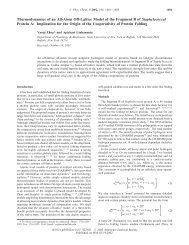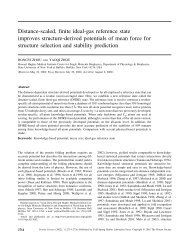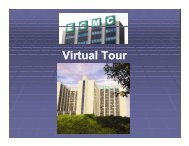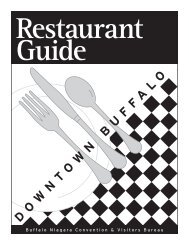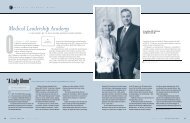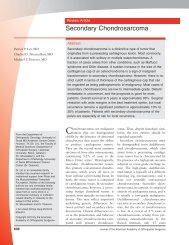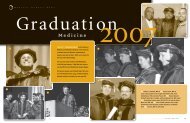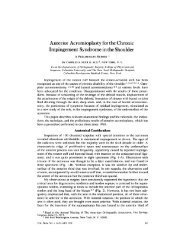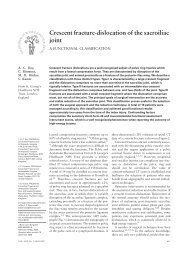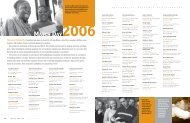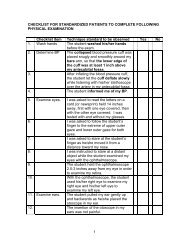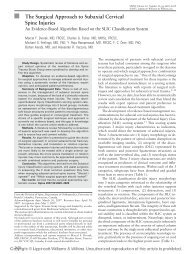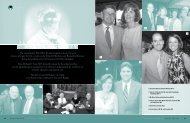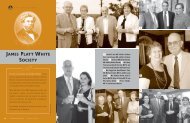Download Residency Training Program PDF - Ross Eye Institute
Download Residency Training Program PDF - Ross Eye Institute
Download Residency Training Program PDF - Ross Eye Institute
Create successful ePaper yourself
Turn your PDF publications into a flip-book with our unique Google optimized e-Paper software.
II<br />
OVERVIEW OF THE RESIDENCY<br />
The <strong>Residency</strong> Review Committee of the ACGME approves programs to train<br />
residents. It is the responsibility of the <strong>Residency</strong> <strong>Program</strong> Director to certify that<br />
each of the residents has achieved acceptable levels of performance. If a resident<br />
does not perform acceptably, it is the responsibility of the program director to<br />
assist him or her if possible or, if not, to discharge him or her from the program.<br />
Areas in which the resident=s performance is judged include cognitive skills,<br />
surgical skills, clinical judgement, and professional conduct. Physicians accepted<br />
into the University at Buffalo Ophthalmology <strong>Residency</strong> <strong>Program</strong> are unlikely to<br />
have insoluble problems in any of these areas. However, in order to critically<br />
evaluate and fairly assess trainees, it is important to outline minimum goals and<br />
expectations.<br />
A. Cognitive skills are assessed in the following ways: the OKAP exam<br />
(Ophthalmic Knowledge and Assessment <strong>Program</strong>) is required and each<br />
resident is expected to score appropriate to his/her capabilities. With the<br />
quality of our residents, we would expect scores equal or higher than the<br />
national average. Faculty evaluations are made quarterly by the staff<br />
responsible for each of the resident=s rotations. Preparations for and<br />
presentations of research projects, Grand Rounds, along with participation<br />
in Journal Club and weekly conferences, are also evaluated by the staff.<br />
2. Surgical skills are evaluated by the staff supervising the resident=s<br />
rotations and during didactic and laboratory surgical sessions. It is<br />
important to recognize that surgical skills encompass more than technical<br />
ability (although this is certainly important): the areas of case selection,<br />
pre- and post-operative care, avoidance and management of complications<br />
and surgical judgement in the operating room are included and are of<br />
utmost importance.<br />
C. Clinical judgement is difficult to define but it is used here to describe the<br />
various skills which separate simple cognitive skills from the ability to<br />
practice clinical medicine. Quite often PGY-2 ophthalmology residents<br />
can answer enough questions correctly on the OKAP examination to pass<br />
the written portion of the American Board of Ophthalmology examination<br />
Part I, but no one would suggest that such individuals are completely<br />
competent to practice ophthalmology. Three years of clinical experience,<br />
with a variety of patients under a wide variety of circumstances and<br />
pressures, offers the opportunity for the residents to synthesize skills<br />
(information gathering, problem solving, surgical technique, relations with<br />
patients and colleagues, etc.) into an effective means of caring for patients.<br />
It is this which is measured under the heading of judgement. This also is<br />
assessed by the staff responsible for the resident=s rotation. Attendance at<br />
all clinics and conferences is mandatory except when on vacation or in the<br />
O.R. as a senior resident.<br />
3



